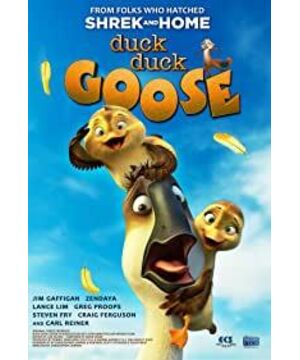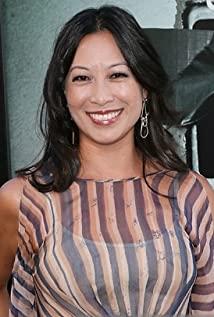The moving story is the skin, and the technical presentation is the hair. If the skin does not exist, the hair will be attached.
I often see a bad street saying, "A lot of domestic animation technology is good enough, but the story is not good".
As a viewer who hopes Guoman will get better and better, I have the same feeling as everyone, including after watching "Duck Mommy", the truly anticipated masterpiece of the Force.
As a practitioner in the animation industry, as a business manager, he will develop a problem: he often likes to ask "what do you mean?", "why?" and "how to do?".
1. What does it mean?
"The technology of many domestic animations is good, but the story is not", what does it mean.
When the audience says "technology is ready", it doesn't mean that technology is really ready. As a practitioner, I am well aware of the industrial advantages of top international animation companies in terms of technology, whether it is the development of our own software and tools, the size of the TD and R&D teams, or the professionalism and artistic quality of the practitioners. The "grass stage team" of the domestic animation industry can be compared.
The audience will say, "The technology is ready", which probably means that if your technology is improved, of course the audience's experience will be better, but the impact on whether the audience recognizes your film is already relatively marginal.
In fact, a lot of times we tend to overlook one thing, that is, no matter what the presentation form of a movie is, whether it is 3D, CG, 4K or VR, what really moves people and makes the audience pay is always the movie. core, and story design. Avatar set off a wave of 3D movies, but the thousands of 3D movies that followed did not surpass Avatar. Many people stare at 3D and feel that adding 3D will stimulate the audience, so they pay for it, and then find that it is not. The most 3D part of many 3D movies up to now is the opening subtitles. Does anyone think that Avatar is a good movie even without 3D, and it can also make the audience pay because its story is inspiring. As I believe, even if it is a 2D animation without CG, it is still a good and touching film, and the box office will not be any worse than it is now.
We often go to review some old classic movies in our spare time, and do we care about the technical aspects such as the picture quality and effect of those old movies? It must be a good story, good acting, and a memorable time and state of mind.
The core and story of a film is like the motor of a car. No matter how luxurious and exquisite your interiors and exteriors are, how crazy and cool your built-in technology is, if there is no driving force, the car will not run. The so-called luxury car is just a decoration, and no one will buy it.
2. Why?
What is not a story? Why is it that the story still doesn't work, knowing that it's not working for so long? Where is it not working? How to call it OK?
This seems like a silly question. But sometimes we can return to the "idiot state" when we look at the problem.
Is the story not good enough? Still not funny enough? Or is the main line branch not rich enough? Or are the characters not full enough?
Whether it is in the European and American markets with a relatively solid industrial foundation, or the emerging Japanese and Korean markets, it is undeniable that in the content industry, "storytelling" has always been a very, very, very professional and awe-inspiring thing. Just as many excellent Japanese comic authors have profound literary skills and artistic appreciation, screenwriters occupy a dominant position in the Korean film and television industry, not to mention European and American countries that have always regarded storytelling as an art. So we will see that Chinese audiences will like Japanese comics, Korean dramas, Hollywood movies, Bollywood movies, European art films, but how many people in those countries like Chinese content? Can you understand the story of domestic films? You say there are cultural differences, so why did cultural differences become unilateral effects? This is obviously not a good excuse.
The screenwriter itself, like any other type of work, is a very professional profession. This professionalism is called Know How, which literally translates to "know how to do it", and the vernacular is "know how." Maybe you will say, isn't this nonsense, otherwise why would there be a screenwriter?
So, how many bosses in domestic films are actually equivalent to screenwriters in order to express their thoughts or "feelings"? How many so-called screenwriters are working for the boss and the gold master? What's more interesting is how many screenwriters actually have professional ability and artistic literacy after systematic study and precipitation? I have great doubts about this.
So back to the topic, why the story doesn't work, because:
1) Like other aspects of the film and television industry, we lack professionals who can truly stand the test of the market in the aspect of storytelling.
2) Many of our animation companies are a motley crew formed by a certain boss, a certain "person" who wants to express "something" in his heart. This not only caused many domestic films to scream when they watched the pictures, and wanted to scold when they watched the plot, but also the production process of the company was dictatorial and chaotic, and the internal management and atmosphere were messed up, wasting valuable human resources.
3) Our industry is growing too fast, there are too many players, and there is a lack of respect for every aspect of the film industry, focusing on "people" (famous directors, stars, celebrities) rather than industrial infrastructure. Japan and South Korea have done better than us at this point, so they have a lot of potential for development, and they are big enough to be small and big. Maybe it's because our market is too big, it's too easy to make money, the water is big and the fish is big, everyone wants to do something, and we can't blame anyone, it's human nature.
3. What should I do?
As a business manager, I am not qualified to give advice on "how to tell a good story" because I am not professional enough, because I respect professionalism. A good idea does not equal a good story, and a good story does not equal a good script. But I do know that in a mature industry, there are several elements to good storytelling that must be understood:
1) Your target audience
The same bad street comment, many domestic animation films "children can't understand, adults are not interested". Our animation practitioners are always "family fun", and family fun is the most difficult. Hollywood has done it for so many years, and it is not all family fun audiences who buy it. Why are there children bartending in nightclubs in our "Little Door God", why is the Dapeng in "Mama Ducky" set to be an older young man who is afraid of marriage, and why "Kunta" has a small hairy child as the protagonist but "courage" ? All kinds of cocooning story settings and common sense mistakes reflect that our decision makers mistakenly believe that "storytelling" is to tell the story in their hearts, but they do not understand the professionalism inside.
2) Why the audience should like your protagonist
The audience's acceptance, substitution and resonance of the protagonist largely determines whether your film can impress the audience. For example, it is understandable for the well-known Monkey King to become the protagonist of the return of the great sage. The audience can also accept the tears and sparks of the film, because behind this is the desire of this ancient nation for justice-this stick will make you ashes; another example is Kunta. In the series, when many viewers saw several characters such as "Spinach" (Bocai-_-), their first reaction was "Why is it so ugly? Why is the head square, why is there only one foot, it looks so uncomfortable", etc., It greatly reduces the audience's acceptance of the protagonist; it is also like Shen Tu Yulei in Xiaomen Shen, one wants to release the Nian beast because of his own selfish desires, and the other is confused and lets his brothers mess around. As a result, the audience prefers dubbing ( Bai Ke, Gao Xiaosong); another example in "A Tang Adventure", the protagonist is a tea pet (?), and the tea pet wants to change color and embark on an adventure, please, Who Tama Cares? Back to Duck Duck, the protagonist Dapeng is young and talented But there is a lack of responsibility and fear of marriage. Who is it for? kid? Or a married parent?
The protagonist's setting, behavioral logic, and inner driving force are very important, and it is also necessary to follow logic and study the psychology of the audience. If you make a wrong move, you will lose.
3) Why are you telling this story, what are the main contradictions of the story, and what are the beliefs behind the story?
As Robert McKee said, conflict is the foundation of story development, and conflict is to story what sound is to music. Audiences are attracted by the contradictions of the story and moved by the beliefs conveyed by the story. For example, in "Ratatouille", the audience was attracted by the contradiction of "Mice can cook too?", and was moved by the belief that "as long as you can make delicious food, mice can also be chefs"; for example, "Crazy Zootopia" ", the audience was attracted by the contradiction of "Can rabbits be police officers?", and moved by the belief in anti-discrimination and pursuit of justice. Going back to our film, what is the main contradiction of Duck Duck? I thought about it for a long time and there is no contradiction. The film is piled up one by one, relying on some performances and jokes to attract the audience, rather than the core contradiction of the story. Dapeng forcibly gained a sense of responsibility at the end, but because he was separated from the contradictory support and did not convey his beliefs, the ending seemed flat and the audience would not be moved. The same is true for many other domestic films, so I will not repeat them.
4) Without a good story, a dazzling team is meaningless
literally
etc
The Force's strength and qualifications in the CG industry are obvious to all. This is the first time to make an original film, and he has also painstakingly formed a Chinese-American mixed-race screenwriter team of seven people, and it is admirable that the boss Zhao Rui is not on the screenwriter list. Although the story of this film is slightly fragmented, it does not bring much resonance and emotion, but at least it is a sustainable, reasonable and complete story. A work like Duck Mama that has no pre-IP foreshadowing, and no schedule advantage, if there is no topic spread and the stamina of running water (see Dasheng and Dafa), it is not easy to get a high box office, but the original force is very important for animation. The respect of the film industry makes people very much looking forward to the next work.
In contrast, the recent "Cat and Peach Blossom Land" (17 million), which hit the streets without incident, is still a word, using the wrong method will not produce the correct result, and the same will be true for the wrong person.
Let us continue to work hard for Guoman.
View more about Duck Duck Goose reviews











